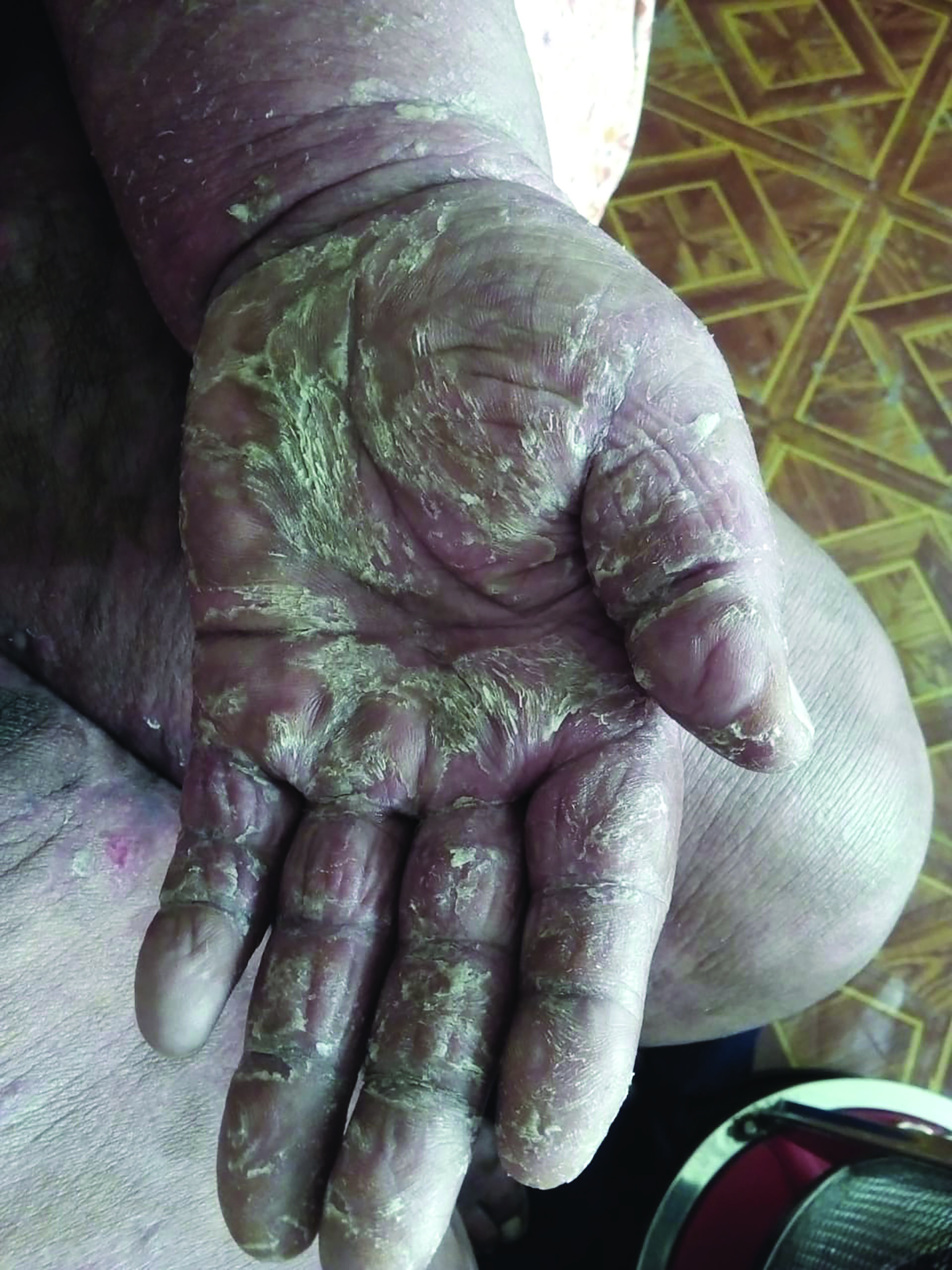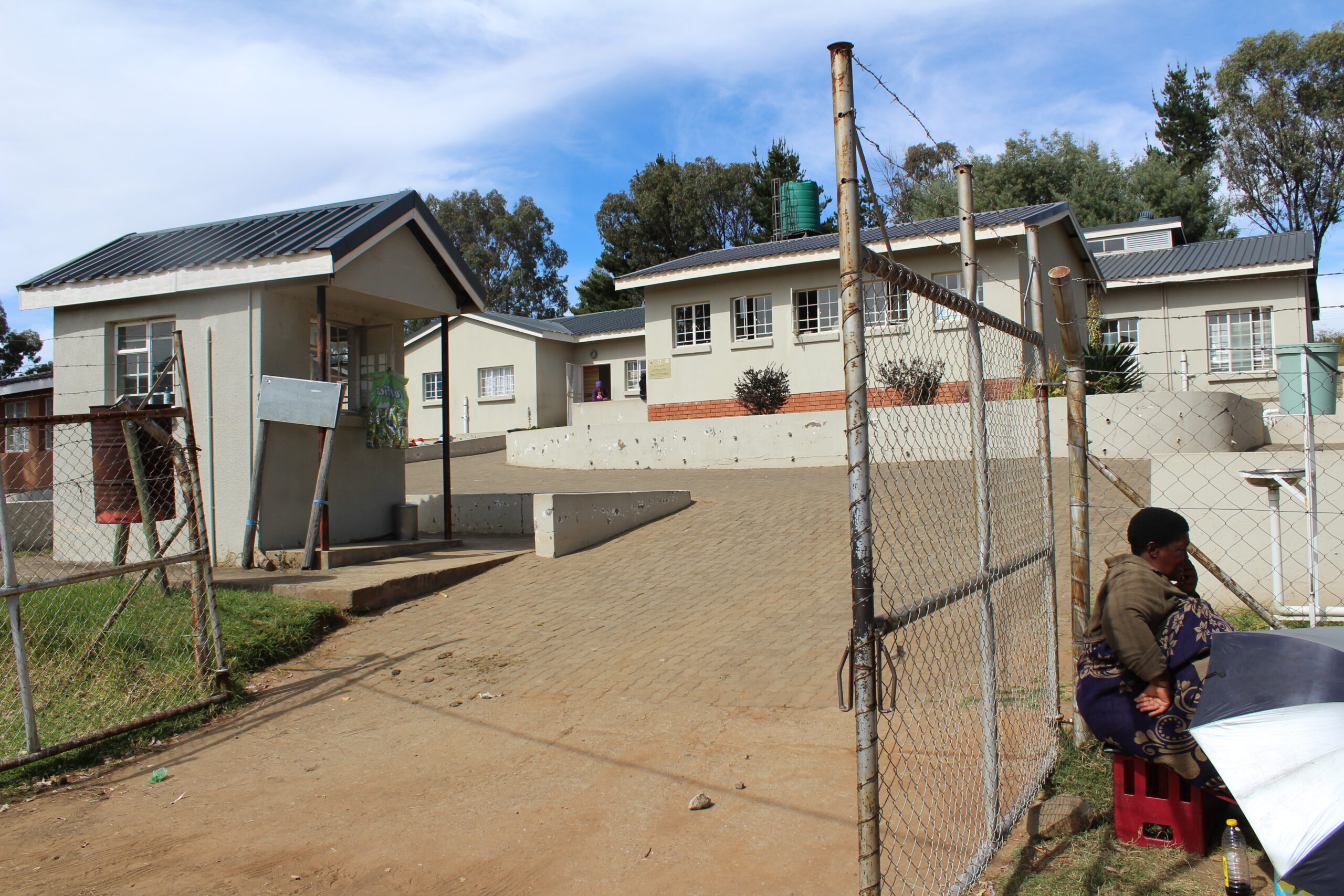… A Village Health Worker’s ordeal
Village Health Worker (VHW) ‘Mapelaelo Nchoba, 67, says she will “never forget” the night she helped deliver a baby on the roadside after a woman from Pitsaneng, in Thaba Tseka, went into labour on the way to the clinic.
The ordeal not only highlighted the extreme risks frontline healthcare workers face in Lesotho’s remote areas but also left Nchoba with a heavy penalty, an M500 fine.
It was past midnight when Nchoba was called to assist a woman in labour. The mother, pregnant with her fourth child, had not attended antenatal care and had been “counting her months by herself.”
Nchoba, despite being “frustrated” that the woman had not gone to the clinic in time for the waiting mothers’ rooms, knew she needed immediate help.
Since Pitsaneng is a village “where there is no road and care could not reach us,” Nchoba reported the matter to the chief. The chief mobilised a large number of men from the village to carry the pregnant woman on their shoulders using a “Lempara”, a makeshift stretcher.
The family also organised a rented car to meet them at the nearest accessible stop, a trek that usually takes about two hours of walking from the village.
They had left Pitsaneng around 01:00 am. However, as soon as the men put the ‘Lempara’ down at the stop, the woman gave birth.
Nchoba was horrified to realise the baby was about to be born, especially because they were entirely unprepared. They had not thought to bring anything, not “surgical cloves” or even soft blankets. “It was really a bad experience because we did not even have enough cotton or water,” she recounted.
To receive the baby and keep it off the soil, they had to use their small blankets, “tjale.”
Nchoba and her companion relied on the signs they had been taught at the clinic to confirm the imminent delivery. They instructed the men to stand far away so they would not witness the birth.
Despite the terrifying circumstances, the woman delivered a healthy baby boy, who is still alive and is about two years old now.
Nchoba’s primary fear was the authorities. “My prayer was just that God make sure that the baby and the mother make it alive,” she said, fearing she would be “in hot soup” with clinic authorities for not ensuring the woman made it to the health center earlier.
After successfully getting the mother and child to the Linakeng Health Center, Nchoba faced the final challenge; blame.
She was “blamed for assisting the women in giving birth.” According to clinic policy, a Village Health Worker who assists in a delivery outside of the health center will be fined M500.
Nchoba had to ask the new mother to help her pay the fine. While the policy is meant to discourage home births, she stresses that sometimes it is an emergency, and “one cannot just look away when someone really needs help.”
The incident underscores the extreme difficulties VHWs face, having to walk up to five hours from Pitsaneng to the clinic, all while knowing that a roadside emergency could result in both professional reprimand and a significant financial penalty.
Since 2005, Nchoba has been on the front lines of health care, tending to the sick, monitoring the nutritional status and growth of children, and providing crucial information to pregnant women and families.
Yet, the rugged terrain and logistical hurdles of her job, especially the long journey to the nearest facility, Linakeng Health Center, highlight the immense challenges facing these vital community workers.
Nchoba’s work is multifaceted and crucial. She looks after patients and pregnant women at the village level, striving to “rectify misinformation” and promote healthy practices.
A key part of her role involves community gatherings where she discusses important health issues, including family planning, with women.
“We also do gatherings where we talk about family planning so that women can have information and make informed decisions regarding the spacing of their children,” she explained.
She noted that many women prefer injectables over pills, citing a tendency to forget to take the latter.
Despite the challenges, people in Pitsaneng value these services. “Our main challenge is the long distances people have to walk to the clinic, Linakeng Health Center, from Pitsaneng, but they still make time to come because they understand the advantages of using family planning,” she states.
From Pitsaneng, residents must walk at least five hours to the clinic or walk two hours to the nearest stop to catch a taxi to Linakeng.
Despite her dedication, Nchoba and her community still grapple with fundamental infrastructure deficits.
The village’s mountainous location makes “movement almost impossible.” Furthermore, they also face other quality-of-life challenges, including a limited water supply and no toilets in the village.
Her story reflects the heart of the United Nations Population Fund (UNFPA)’s mandate to ensure that every pregnancy is wanted, every childbirth is safe, and every young person’s potential is fulfilled.
To achieve this, UNFPA works to guarantee access to sexual and reproductive health services, promote gender equality and women’s empowerment, and combat issues like unwanted pregnancies, maternal deaths, and violence against women and girls.
Summary
- Village Health Worker (VHW) ‘Mapelaelo Nchoba, 67, says she will “never forget” the night she helped deliver a baby on the roadside after a woman from Pitsaneng, in Thaba Tseka, went into labour on the way to the clinic.
- “My prayer was just that God make sure that the baby and the mother make it alive,” she said, fearing she would be “in hot soup” with clinic authorities for not ensuring the woman made it to the health center earlier.
- The incident underscores the extreme difficulties VHWs face, having to walk up to five hours from Pitsaneng to the clinic, all while knowing that a roadside emergency could result in both professional reprimand and a significant financial penalty.

Ntsoaki Motaung is an award-winning health journalist from Lesotho, specializing in community health stories with a focus on sexual and reproductive health and rights, as well as HIV. She has contributed to platforms like “Be in the KNOW,” highlighting issues such as the exclusion of people with disabilities from HIV prevention efforts in Lesotho.
In addition to her journalism, Ntsoaki serves as the Country Coordinator for the Regional Media Action Plan Support Network (REMAPSEN). She is also a 2023 CPHIA Journalism Fellow.










